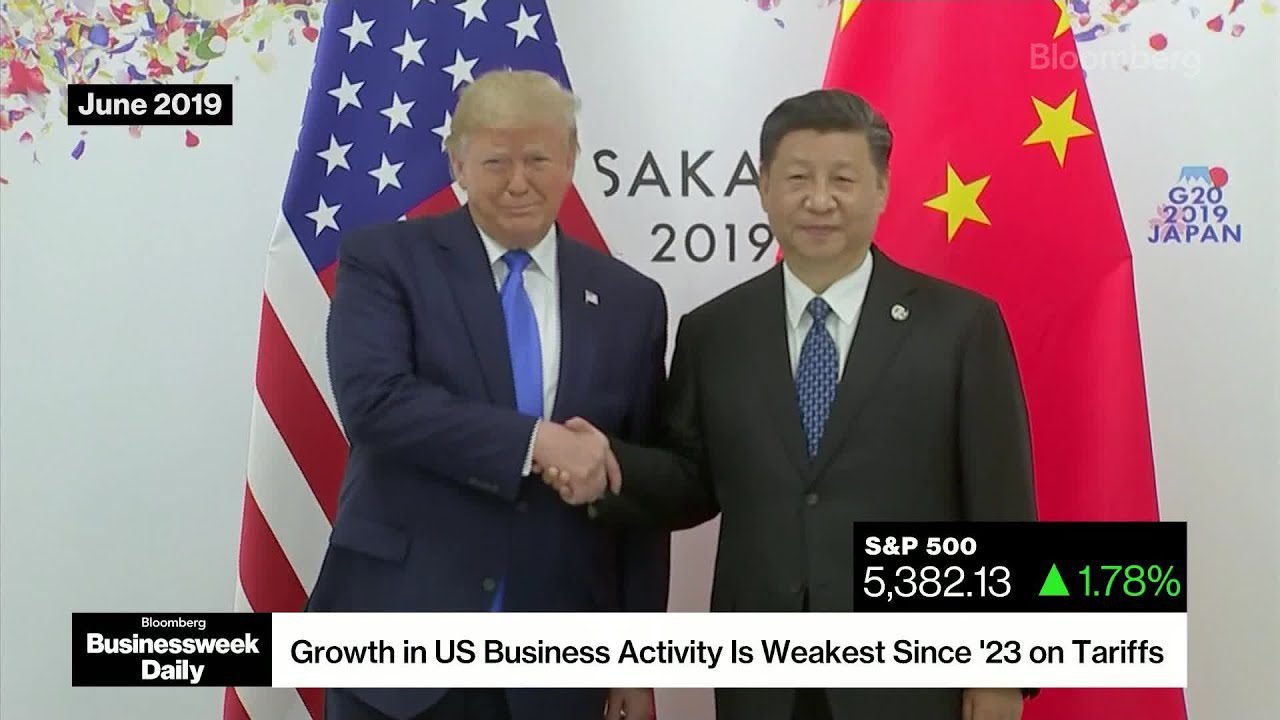Bloomberg News trade tsar Brendan Murray discusses the future of trade between the US and China and how the back and forth on tariffs in the Trump administration is set to impact both economies.
Treasury Secretary Scott Bessent said that President Donald Trump hasn’t offered to take down US tariffs on China on a unilateral basis.
Asked if there was no unilateral offer from the president to de-escalate, Bessent said “not at all.” He was answering reporters’ questions Wednesday after a keynote speech at an Institute of International Finance event in Washington. “As I’ve said many times, I don’t think either side believes that the current tariff levels are sustainable, so I would not be surprised if they went down in a mutual way.”
Trump on Tuesday had said that US tariffs “will come down substantially but it won’t be zero,” and that he didn’t see the need to “play hardball” with Chinese leader Xi Jinping.
Bessent said that the Trump administration is looking at multiple factors with regard to China beyond just tariffs — including non-tariff barriers and government subsidies. He also said that the strongest relationship between Washington and Beijing is at the top, and that there was no timeframe for engagement. He said that a full rebalancing of trade might take two to three years.
Trump said separately on Wednesday that the US is going to have a fair deal with China.
The Treasury chief also said that the US and India are “very close” on a trade agreement. He reiterated that a satisfactory arrangement doesn’t mean an actual trade document — signaling, as he has before, that initial deals with trading partners will be a broad framework rather than a detailed trade agreement.
Confronted with fresh warnings from financial markets, business leaders and top advisers, President Donald Trump this week eased off on two of his frequent punching bags: Jerome Powell and China.
Trump entered office with a steadfast desire to reshape the global economy. But his resolve has appeared to waver in the face of turmoil in equities and bonds and pleas from powerful executives who fear his sweeping tariffs and interference with the Federal Reserve could set off an economic calamity.
Trump on Tuesday said he had no intention to fire Powell — despite days of criticism over the central bank’s policies — and said he believed a deal with Beijing would significantly reduce the sweeping tariffs he’s posted on Chinese goods. After a report that the US would be willing to phase in lighter tariffs on Beijing over five years on Wednesday, Trump told reporters that China was “going to do fine” once talks had settled.
Trump’s turnabout eased investors’ concerns that had fueled a weeks-long selloff. US equities on Wednesday were poised to build on the biggest gains in two weeks, with the S&P 500 Index up more than 3% at its session high.
Still, the whiplash underscores that markets and the economy are beholden to the whims of the US president unlike ever before — a sign that more turmoil lies ahead.
——–
Watch Bloomberg Radio LIVE on YouTube
Weekdays 7am-6pm ET
WATCH HERE: http://bit.ly/3vTiACF
Follow us on X: https://twitter.com/BloombergRadio
Subscribe to our Podcasts:
Bloomberg Daybreak: http://bit.ly/3DWYoAN
Bloomberg Surveillance: http://bit.ly/3OPtReI
Bloomberg Intelligence: http://bit.ly/3YrBfOi
Balance of Power: http://bit.ly/3OO8eLC
Bloomberg Businessweek: http://bit.ly/3IPl60i
Listen on Apple CarPlay and Android Auto with the Bloomberg Business app:
Apple CarPlay: https://apple.co/486mghI
Android Auto: https://bit.ly/49benZy
Visit our YouTube channels:
Bloomberg Podcasts: https://www.youtube.com/bloombergpodcasts
Bloomberg Television: https://www.youtube.com/@markets
Bloomberg Originals: https://www.youtube.com/bloomberg
Quicktake: https://www.youtube.com/@BloombergQuicktake




